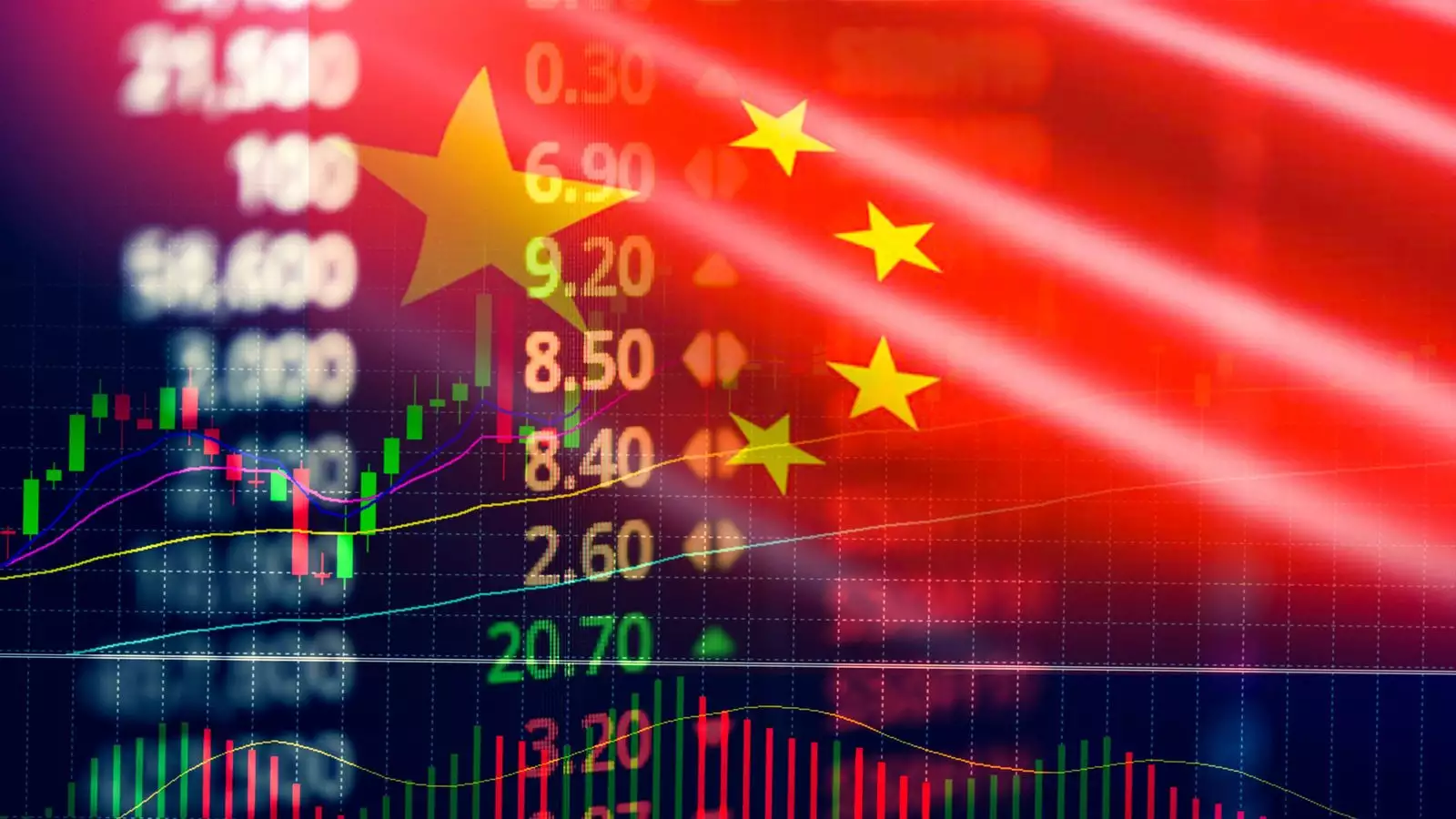Global investment banks Goldman Sachs and Morgan Stanley have lowered their market outlooks for Hong Kong and China, citing economic headwinds, geopolitical tensions, and reduced corporate earnings prospects. These downgrades highlight growing skepticism over the region’s economic recovery efforts and raise questions about the potential impact on global investors.
Hong Kong Under Pressure
Goldman Sachs adjusted its stance on Hong Kong stocks from “market weight” to “underweight,” signaling weaker confidence in the region’s near-term performance. Analysts cited Hong Kong’s reliance on external economic factors, limited growth prospects, and ongoing challenges in the property and retail sectors.
Despite cheap valuations, Hong Kong’s Hang Seng Index has struggled, reflecting the broader uncertainty over China’s ability to stimulate meaningful economic growth. Goldman Sachs analysts stated:
“Although valuations are not demanding, Hong Kong does not offer much economic or earnings growth.”
The bank’s pessimism aligns with data showing that policy support from Beijing may not benefit Hong Kong’s economy as effectively as before. This is due to China’s shifting focus toward bolstering its domestic market, leaving export-dependent regions like Hong Kong vulnerable.
Mainland China: A Mixed Picture
Morgan Stanley also downgraded China to a slight “underweight” from “equal weight” within its emerging markets portfolio. Its analysts warned of intensified headwinds on corporate earnings and market valuations, with geopolitical factors such as trade tensions and potential tariffs playing a pivotal role.
China’s CSI300 Index, which tracks top companies listed in Shanghai and Shenzhen, traded at 4,011 on Monday, November 18. Morgan Stanley’s base-case projection for the index is 4,200 by the end of 2025, representing modest growth of about 4.7%. Goldman Sachs, slightly more optimistic, set a higher target of 4,600 for the CSI300 by 2025, underscoring its preference for mainland stocks over Hong Kong-listed ones.
Currency Outlook
Both banks predict continued depreciation of the Chinese yuan. Goldman Sachs expects the dollar/yuan exchange rate to hit 7.5 by the end of 2025, while Morgan Stanley forecasts a slightly weaker yuan at 7.6. The yuan traded at 7.2371 per dollar on Monday, reflecting ongoing pressure on the currency amid China’s slower-than-expected economic recovery and the Federal Reserve’s tighter monetary policies.
Currency depreciation is a double-edged sword: it can make Chinese exports more competitive but also raises import costs, potentially dampening domestic demand and squeezing corporate profit margins.
Hong Kong’s Sectoral Struggles
Hong Kong’s property market, a critical component of its economy, continues to face headwinds. Prolonged interest rate hikes have suppressed borrowing and investment, leading to sluggish performance in both commercial and residential real estate. Similarly, retail sales have not rebounded to pre-pandemic levels, exacerbating economic vulnerabilities in a region that historically thrived as a global trading hub.
Additionally, Hong Kong’s reliance on global market sentiment and its sensitivity to foreign exchange fluctuations make it more susceptible to volatility compared to the mainland. As a result, both banks advise investors to prioritize mainland stocks, which are less exposed to these external pressures.
Geopolitical and Economic Risks
Morgan Stanley highlighted the geopolitical risks posed by U.S.-China tensions as a key factor in its outlook downgrade. Analysts warned that a potential Republican sweep of Congress and the White House in the 2024 U.S. elections could lead to heightened trade tariffs and stricter regulations on Chinese companies operating abroad.
Moreover, China’s structural economic challenges—including a shrinking workforce, high local government debt, and slowing manufacturing output—are creating additional obstacles for sustained growth.
Beijing’s Policy Response
China’s government has rolled out a series of measures aimed at stimulating economic activity, including:
- Lowering interest rates to boost lending.
- Implementing targeted fiscal policies to support small businesses.
- Providing incentives to stabilize the housing market.
Despite these efforts, both banks expressed doubts about their effectiveness in addressing the broader economic slowdown. Morgan Stanley noted that China’s reliance on domestic demand might not generate the same level of economic growth as its previous export-driven model.
Investment Strategies
In light of these developments, both Goldman Sachs and Morgan Stanley recommend a rebalancing of investment portfolios toward mainland shares. Mainland equities are seen as more resilient due to their lower sensitivity to global sentiment and currency fluctuations.
Goldman Sachs particularly emphasized opportunities in sectors tied to China’s domestic consumption and technology innovation. These include:
- Renewable energy and green technology.
- Consumer goods tailored to China’s growing middle class.
- Advanced manufacturing, particularly in semiconductors and electric vehicles.
Morgan Stanley, meanwhile, urged caution and suggested that investors maintain a diversified portfolio to mitigate risks associated with geopolitical uncertainty and market volatility.
Broader Implications
The downgrades by two of the world’s most influential financial institutions reflect broader concerns about China’s role in the global economy. As Beijing pivots toward internal economic priorities, regions like Hong Kong—which depend on external trade and foreign investment—may face prolonged challenges.
Additionally, the global financial landscape could see ripple effects, particularly for emerging markets that are closely tied to China’s economic health. For example:
- Commodity-exporting countries may experience reduced demand if China’s industrial activity remains subdued.
- Emerging market currencies could face depreciation pressures as investors shift toward safer assets.
Conclusion
Goldman Sachs and Morgan Stanley’s revised outlooks on China and Hong Kong underscore the complexities of navigating an economic landscape marked by geopolitical tensions, structural challenges, and shifting policy priorities. While mainland equities offer some promise, Hong Kong’s economic struggles and the yuan’s depreciation highlight the need for caution.
For global investors, the key takeaway is clear: navigating China’s evolving economic landscape requires a nuanced approach, balancing optimism for specific sectors with a realistic assessment of risks.
Ready to take your career to the next level? Join our dynamic courses: ACCA, HESI A2, ATI TEAS 7 and HESI EXIT !🌟 Dive into a world of opportunities and empower yourself for success. Explore more at Serrari Ed and start your exciting journey today! ✨
Photo source: Google
By: Montel Kamau
Serrari Financial Analyst
20th November, 2024
Article, Financial and News Disclaimer
The Value of a Financial Advisor
While this article offers valuable insights, it is essential to recognize that personal finance can be highly complex and unique to each individual. A financial advisor provides professional expertise and personalized guidance to help you make well-informed decisions tailored to your specific circumstances and goals.
Beyond offering knowledge, a financial advisor serves as a trusted partner to help you stay disciplined, avoid common pitfalls, and remain focused on your long-term objectives. Their perspective and experience can complement your own efforts, enhancing your financial well-being and ensuring a more confident approach to managing your finances.
Disclaimer: This article is for informational purposes only and does not constitute financial advice. Readers are encouraged to consult a licensed financial advisor to obtain guidance specific to their financial situation.
Article and News Disclaimer
The information provided on www.serrarigroup.com is for general informational purposes only. While we strive to keep the information up to date and accurate, we make no representations or warranties of any kind, express or implied, about the completeness, accuracy, reliability, suitability, or availability with respect to the website or the information, products, services, or related graphics contained on the website for any purpose. Any reliance you place on such information is therefore strictly at your own risk.
www.serrarigroup.com is not responsible for any errors or omissions, or for the results obtained from the use of this information. All information on the website is provided on an as-is basis, with no guarantee of completeness, accuracy, timeliness, or of the results obtained from the use of this information, and without warranty of any kind, express or implied, including but not limited to warranties of performance, merchantability, and fitness for a particular purpose.
In no event will www.serrarigroup.com be liable to you or anyone else for any decision made or action taken in reliance on the information provided on the website or for any consequential, special, or similar damages, even if advised of the possibility of such damages.
The articles, news, and information presented on www.serrarigroup.com reflect the opinions of the respective authors and contributors and do not necessarily represent the views of the website or its management. Any views or opinions expressed are solely those of the individual authors and do not represent the website's views or opinions as a whole.
The content on www.serrarigroup.com may include links to external websites, which are provided for convenience and informational purposes only. We have no control over the nature, content, and availability of those sites. The inclusion of any links does not necessarily imply a recommendation or endorsement of the views expressed within them.
Every effort is made to keep the website up and running smoothly. However, www.serrarigroup.com takes no responsibility for, and will not be liable for, the website being temporarily unavailable due to technical issues beyond our control.
Please note that laws, regulations, and information can change rapidly, and we advise you to conduct further research and seek professional advice when necessary.
By using www.serrarigroup.com, you agree to this disclaimer and its terms. If you do not agree with this disclaimer, please do not use the website.
www.serrarigroup.com, reserves the right to update, modify, or remove any part of this disclaimer without prior notice. It is your responsibility to review this disclaimer periodically for changes.
Serrari Group 2025
















